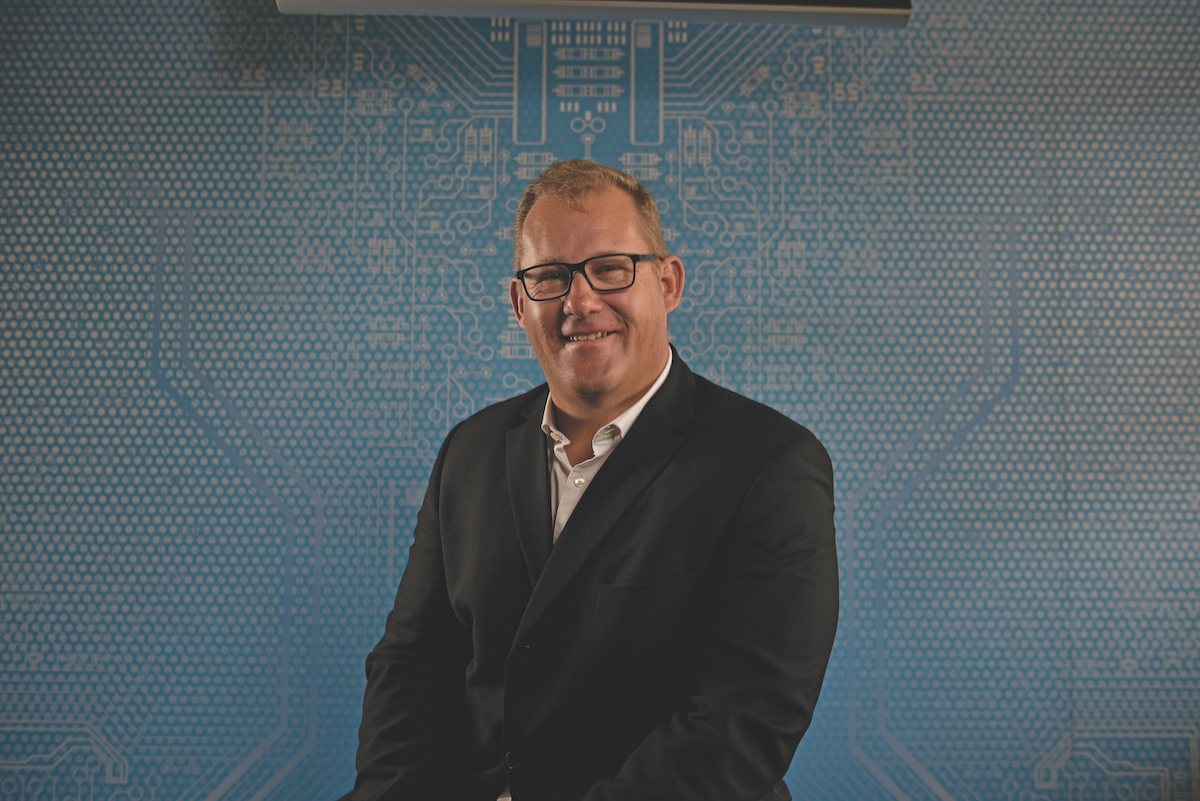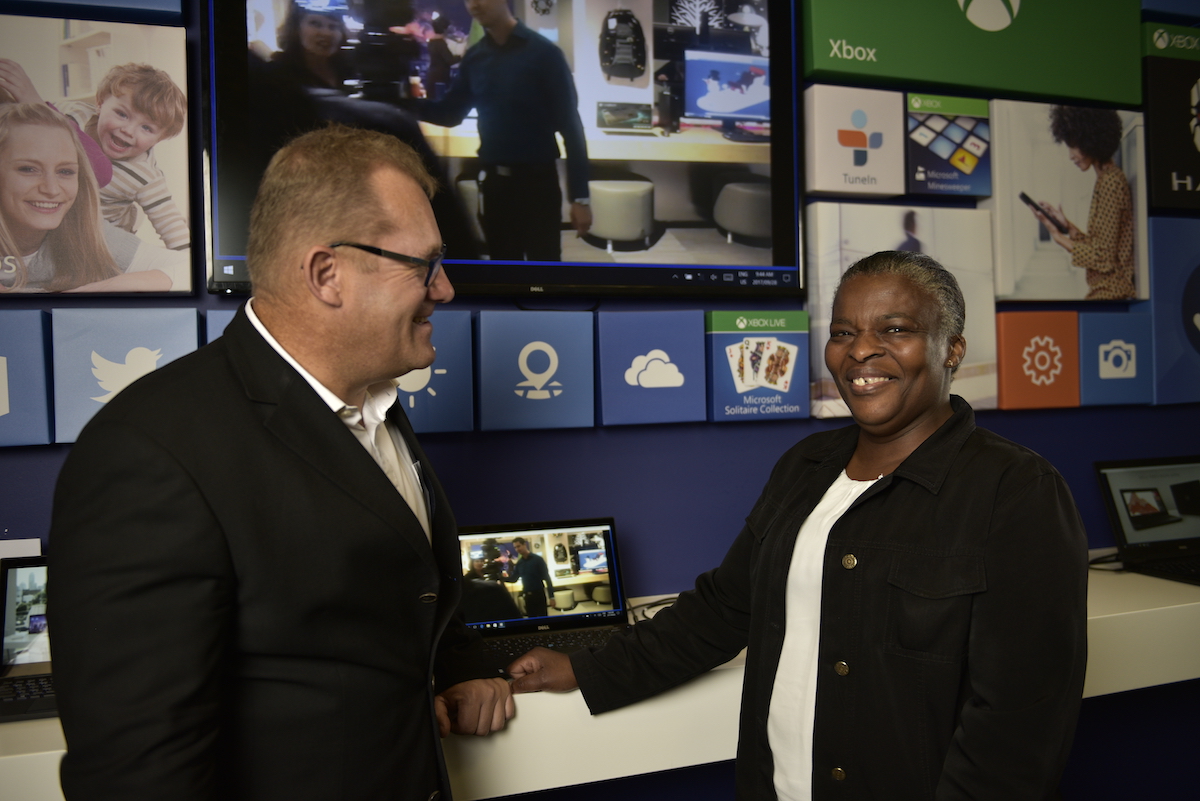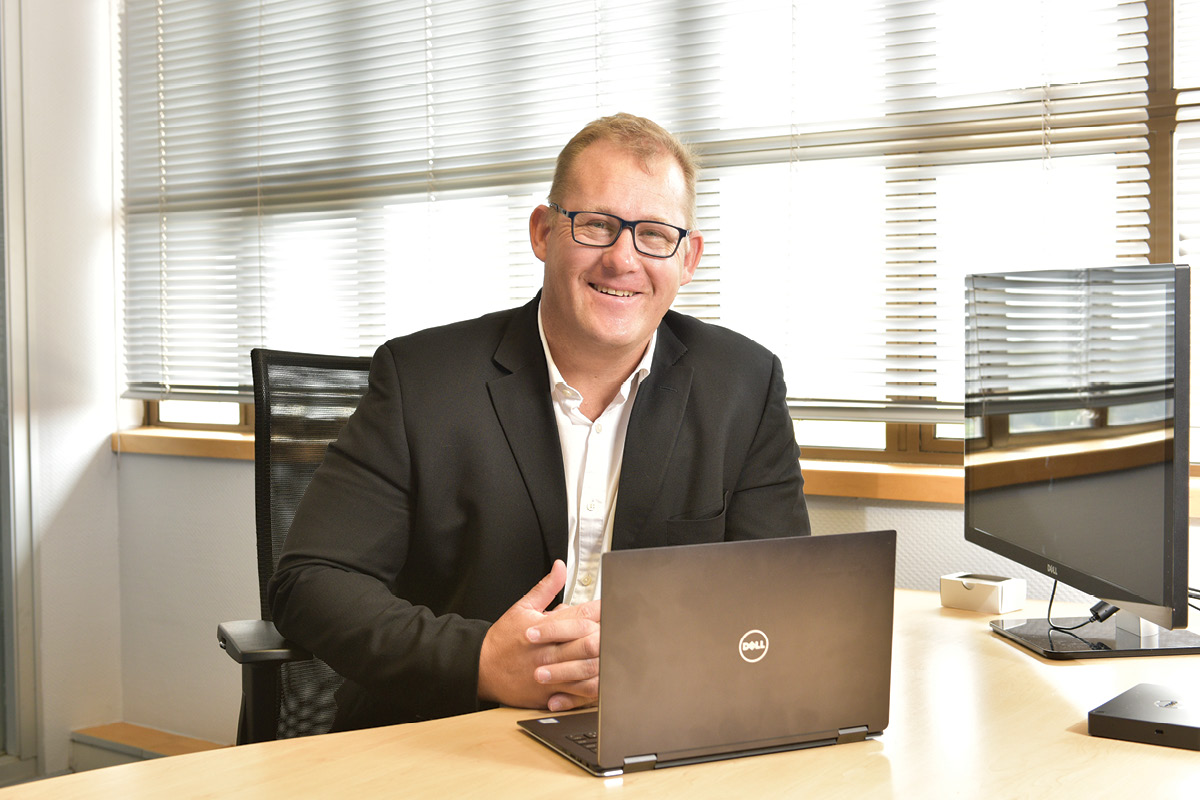Amid the digital and technological changes sweeping through the business world, companies that stand still are at risk of ceding hard-won market share and quickly losing relevance. Doug Woolley, Dell EMC’s South Africa General Manager, is keenly aware of the ever-evolving digital challenges that companies across varied sectors are facing, and with “disrupters around every corner”, points to the importance of businesses being prepared and agile.
It is with these challenges firmly in mind that Doug is focused on positioning data-storage provider Dell EMC at the forefront of the digital transformation in South Africa. He’s drawing on the American multinational’s vast resources to deliver a portfolio of digital services tailored to the local market.
As digital momentum continues to gather pace, Doug notes that having the right structures in place will prepare companies for the disruption and the transformation that’s going to happen in their businesses.
Drawing on more than two decades of experience in the IT sector, Doug combines a practical understanding of the issues that companies are facing with firsthand knowledge of the benefits that digitisation can deliver.
Since being appointed general manager of Dell EMC South Africa in 2015, a priority has been to assess how best to go about equipping the company’s customers with the digital tools required to meet the evolving needs of the consumers.
Doug Woolley makes the move from local to multinational
Reflecting on his move to the global technology heavyweight, Doug explains that he had been keen to take up a position with a vendor, putting to use his experience gained across the IT supply chain. Dell “stood out because it acted and behaved very differently to the normal American multinational vendor”, he reflects.
“I’ve always enjoyed companies where there’s been more of an entrepreneurial vibe, and Dell being an entrepreneurial company at its heart and at its roots resonated with me,” he explains of his initial attraction to the company. “Dell has really proven to the market that even in traditional IT and in the infrastructure side, there’s still innovation. You can still change business models.
“With Dell being a privately held company, it is also one of the few vendors out there that is majority owned by one shareholder. I think that the benefit of this is that you’ve got somebody who’s tied very closely to the business, meaning that you’re not exposed to the rigours of the market like other vendors. You can build medium-term or long-term strategies, rather than having a quarterly outlook.”

I’ve always enjoyed companies where there’s been more of an entrepreneurial vibe.
Moving from a local company to a multinational had presented some challenges; however, Doug notes that his previous experience, gained from holding senior positions at a number of organisations, has stood him in good stead.
“The main thing that a person has to come to grips with when coming into a multinational rather than a local company is around processes and centralised decision making,” he observes. “I think my previous experience gave me a bit of a head start when coming into the Dell role.”
Following Dell’s acquisition of data-storage provider EMC Corporation, completed towards the end of 2016, Doug was appointed general manager of the newly formed Dell EMC South Africa. The US$67 billion acquisition, which created the world’s largest privately controlled technology company, brought together the Dell client solutions and EMC infrastructure business under the banner of Dell Technologies.
The Dell EMC merger creates new opportunities for growth
Doug says that having a globally integrated team post-merger is “driving innovation and providing customers with a much broader solution and product set.” He adds that at a local level the merger process has seen two complementary teams brought together, providing an avenue for further growth.
“Between the respective Dell and EMC cultures, I think we’ve been able to build a new dynamic culture. On the back of that, we’ve been able to drive fairly good market growth with respect to the new product portfolio,” he comments.
“In South Africa, we’re implementing a lot of what has originated in the US as a strategy, and have been focused on making sure that we’ve got the right market coverage and the right roots to market. As such, a lot of our focus has revolved around forming different partnerships to get our message across to as many companies as possible.”

It’s a message that is becoming more and more pertinent. Doug points to the inherent challenges that businesses large and small face when seeking to shift from legacy systems to new technologies. However, he notes that as traditional business models continue to be challenged, it is a transition that is becoming increasingly necessary.
Supporting this transition, Doug states, Dell EMC is focused on ensuring that it remains relevant at both technology and value levels, and describes the digital transformation of the company’s customers – ensuring that they “are more agile, cost-conscious and can effectively provide a better service” – as being Dell EMC’s biggest opportunity and challenge in the market.
“In addition to this, in South Africa, and I think the continent in general, a more specific challenge is access to skills,” he observes. “That’s probably one of the reasons why we focus on the social development side, around training and skills development. Access to skills does limit you in terms of how you can digitally transform a business.”
Closing the digital skills gap in Africa
Placing a strong emphasis on the company’s corporate social responsibility, Doug explains that at a local level Dell EMC “puts a lot of effort into building the next generation of high-level computing skills”. He points out that the company runs a number of school projects, with sustainability forming a key component.
“It’s about making sure that students are okay with the digitised world, and are using computers and developing computer skills as part of their learning,” he explains. “We’re also driving a lot of adult literacy programs. We’re trying to digitally close the gap and to make sure that in the African continent we’re giving people new opportunities. The smarts are here; people just need an opportunity to be able to drive innovation.”
We’re trying to digitally close the gap and to make sure that in the African continent we’re giving people new opportunities.
Doug states that Dell EMC is focused on being a fair and ethical company – maintaining a balance between being passionate about its business and ensuring that it carries out its activities in accordance with its values.
At a personal level, assessing his role within the organisation, Doug stresses the importance of staying humble, describing a good leader as one who is prepared to lead by example, and “somebody who doesn’t mind being a servant–leader”.
“You do everything that is expected and you literally roll up your sleeves and get your hands dirty,” he states. “I think it is important to be able to lead through relationships and humility. If you’re in touch with your customers, your staff, and all your stakeholders, and you do that with humility and sincerity, that’s true leadership.
“People will follow because they see somebody who is inspirational and willing to go the extra mile. For me, these are some of the key attributes that I see as being very important.”



